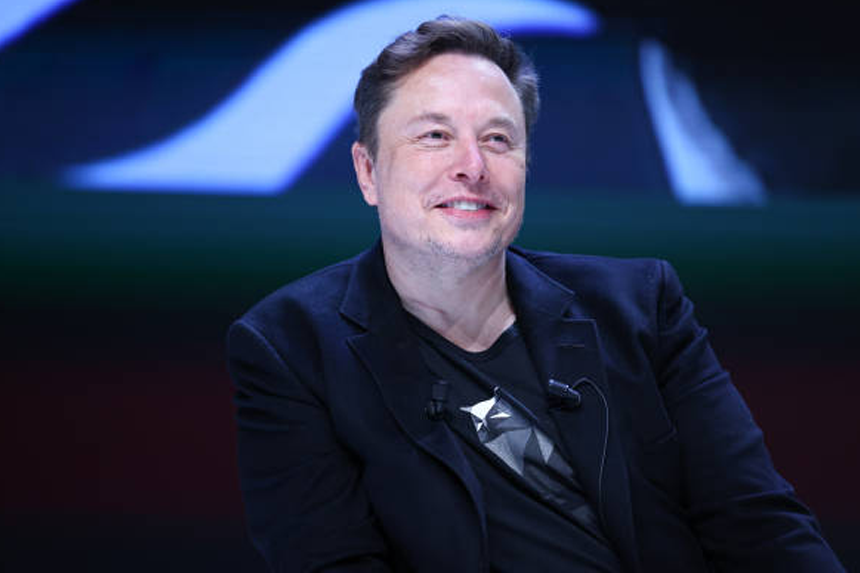The CEO of Tesla, Elon Musk, recently declared his intention to resign from the Department of Government Efficiency (Doge) inside the Trump administration. For Tesla, which has been struggling with financial problems including a significant decline in profitability, this choice comes at a crucial junctural. Musk’s participation in Doge attracted a lot of attention, and his choice to concentrate on his company empire raises issues regarding the course of Doge as well as the route Musk will follow in his political and commercial spheres.
- What is Doge, and how does the government of Elon Musk fit?
- How does the government's role of Elon Musk affect Tesla?
- What is next about the government involvement of Doge and Elon Musk?
- How might Elon Musk's government involvement influence his other businesses?
- In essence: The Government Role of Elon Musk Going Forward and Tesla's Rehabilitation
This paper will investigate the effects of Elon Musk’s government involvement on Tesla and the Department of Government Efficiency, therefore offering insight on the difficulties ahead for the department as well as the billionaire entrepreneur. We will also examine the causes of his changing objectives and their implications for the direction of government efficiency projects going forward
What is Doge, and how does the government of Elon Musk fit?
Under the Trump administration, the Department of Government Efficiency (Doge) was established with the intention of lowering government waste and raising performance across federal departments. Musk participated in this effort in a novel way. Being a well-known businessman, he offered a special viewpoint by mixing government service with private sector knowledge.
The administration of Elon Musk served in an unusual capacity for Doge. The department was meant to simplify government procedures, eradicate inefficiencies, and cut pointless expenditure. Musk was invited to lead these initiatives after his prosperous endeavors with Tesla and SpaceX. The Trump Administration made a daring choice in appointing Musk, whose leadership is seen as driving significant transformation within government processes.
Still, Musk’s exact position within Doge was not without question. His major obligations to his private-sector businesses raised concerns about his ability to properly combine his government obligations with his leadership responsibilities at Tesla and SpaceX. This dynamic makes Musk’s leaving of Doge all the more noteworthy.
Though public focus on his government involvement was high, Musk’s leaving was expected for some time. President Trump confirmed that Musk’s leaving would occur after the department’s activities come to an end. “We have to let him leave and execute that at some time. We anticipated doing it about this time. I will speak with Elon about it,” the president said. Still unknown, though, Musk’s precise departure date raises the issue of how Doge will proceed without his guidance. Read another article on What part is Musk playing in German politics?
How does the government's role of Elon Musk affect Tesla?
Musk’s choice to back off from Doge coincides with concerning Tesla financial news. With a 71% drop in profits in its most recent financial report, Tesla has drawn demonstrations and demands for boycotts of the vehicle producer. Musk said that as these difficulties grew that he would pay more attention to the business that established him as a household name.
Musk disclosed on an earnings call that he would be giving more of his attention to Tesla, saying, “The time I allocate to Doge will reduce dramatically. I will be giving Tesla significantly more of my time. With Musk trying to guide Tesla through its present financial crisis, this revelation marks a significant change in his priorities.
After Musk’s comment, Tesla’s stock price barely changed, implying that investors believe he can turn the ship around. Musk’s leadership and inventiveness have helped Tesla negotiate difficult earlier periods notwithstanding financial challenges. Many investors and industry observers are hopeful about Tesla’s future given its fresh concentration on the business.
Apart from his commercial obligations, Musk has also come under more public criticism because of his multiple jobs in the public and private sectors. Critics contend that the mix of these duties would have diverted him from his obligations at Tesla, therefore complicating the company’s capacity to handle its financial problems. Therefore, Musk’s choice to give Tesla top priority over Doge might be a required one to ensure the company’s survival.
What is next about the government involvement of Doge and Elon Musk?
Musk’s retreat from his Doge leadership post raises questions about the department’s future. The goal of Doge is still important since many legislators still give government efficiency first importance. Musk’s absence, though, might compromise the department’s momentum. The other leaders at Doge will have to keep working to increase government efficiency, but it’s not obvious if they can keep the same degree of influence without Musk’s high-profile leadership.
Doge has an aggressive completion date for his job. Reducing waste, streamlining bureaucratic inefficiencies, and guaranteeing better taxpayer dollar utilization were assigned to the department. But without his direct participation, many of the chores Musk had intended to perform could remain unfinished. This begs issues of whether Doge’s objectives will be satisfied and what type of legacy Musk will leave in the field of government efficiency.
Furthermore underlined by the Trump administration is Musk’s temporary nature and the department’s never intended reliance on one person. Still, given Musk’s reputation and his capacity to draw attention to government waste, it’s unclear whether the department can maintain the degree of interest and support it has attracted under his direction.
How might Elon Musk's government involvement influence his other businesses?
Elon Musk’s official job as a special government employee (SGE) was subject to several rules, including a cap on the daily working hours he could put in for the government annually. SGE’s can only serve for 130 days annually under present regulations, hence Musk has been obliged to cooperate with Doge within this restriction. Although the exact number of days Musk has previously worked for the government is yet unknown, these restrictions most certainly will affect his choice to distance himself from Doge.
Moreover, ethical standards applied to Musk’s government employment, requiring avoidance of conflicts of interest and financial disclosures among other things. These ethical rules are essential to making sure Musk’s participation in government does not contradict his private-sector obligations given the large economic interests he has in businesses engaged in government procurement.
Musk’s leaving Doge also begs issues regarding the more general problem of corporate sector influence in government. Although Musk’s participation in Doge is praised as a daring experiment, it also emphasizes the difficulty in juggling corporate leadership with government engagement. Policymakers might have to review the function of private-sector executives in government service going forward and take into account the possible conflicts resulting from such multiple jobs.
In essence: The Government Role of Elon Musk Going Forward and Tesla's Rehabilitation
Although Elon Musk’s government involvement in Doge was innovative, his choice to back off finally fits the continuous difficulties Tesla faces. Musk’s fresh emphasis on his commercial activities raises concerns about the survival of Doge and the larger goal of government efficiency, even while it might offer the leadership required to turn Tesla around.
Musk returns his focus to Tesla and must now help the business negotiate a period of financial crisis. Nonetheless, investors expect that Musk’s comeback to Tesla would bring the same degree of creativity and success defining his career. For Doge, the task will be to establish that it can reach its objectives without Musk’s direct participation and to carry on its work without his well-known leadership.
Though Elon Musk’s government participation in Doge was always intended to be temporary, its legacy may nevertheless shape public opinion of government efficiency programs going forward. Though Musk’s leaving marks a new chapter in his career, his impact on both Tesla and government service is probably felt for years to come.








